#harvey weinstein revelations
Explore tagged Tumblr posts
Text
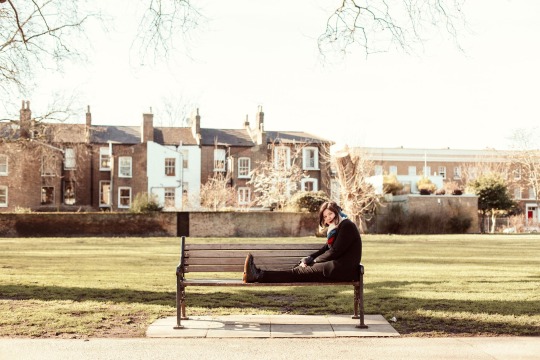
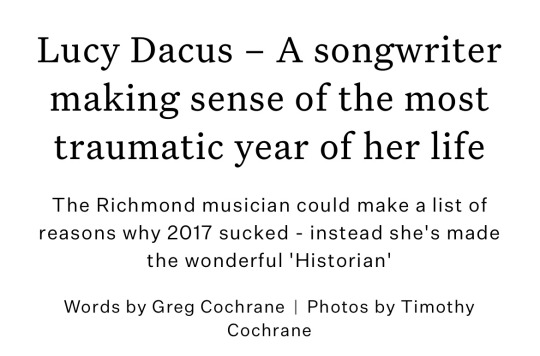
On New Year’s Eve, during a house party at her home in Richmond, Virginia, Lucy Dacus had her fortune told. She thought why not. On a personal level, 2017 had been a wretched year – a steady conveyor belt delivering the 22-year-old bad news.
“This girl, who I didn’t even know, came to the party and gave me this year-long reading,” she explains. “Month-by-month it was so specific. So far, it’s kind of lined up.”
In the past Dacus has been sceptical about the prophetic powers of the tarot card deck, and was taught that the pentacles (coins) were a symbol of Satan. “It’s hard to look to the future and see nothing, to know nothing,” she muses. “I still don’t know what’s going to happen, but having something to have your mind bounce off is nice. That’s why I like tarot. It gives you something to reflect on.”
It’s all part of a fresh way of thinking for Dacus, a new “mood of just trying to be open to new things.” For so many reasons the past year has been one Lucy Dacus is keen to put behind her. “I guess I could just list things,” she says laughing, but not joking. To begin, some of her close family suffered health problems, compounded by her own serious issues including a bout of appendicitis that forced her to have surgery. She was attempting to buy a house for the first time, a process that proved “trying”. Three of her tours got cancelled.
“It was a little bit miserable,” says Dacus, sitting in an east London cafe. “Towards the end of the year, I just had to laugh… Like, come on!”
Interwoven with these practical challenges she was having to navigate something much more troubling. “I got out of a relationship in 2016, which I was waking up from in 2017 – realising that it was abusive,” she begins. “Letting myself say that, it took many months to come out of the numbness… to stop being brainwashed. So, that’s all been a growth. It’s ended up being positive, but it is difficult wondering how I let that be a part of my life for so long.”
Deepening the ordeal, still, this year of personal upheaval was set to the backdrop of Trump’s first 12 months in office. A vociferous supporter of Bernie Sanders through the 2016 election campaign, Dacus is a passionate advocate for equal rights, attending marches and collecting donations for community organisations at her shows. To have Trump sat in the White House representing her country, she says, felt – feels – “horrible”. “It’s just absurd and I feel like I’m in an alternate universe,” she says. “It’s really hard maintaining hope.
“Coming to Europe I’m embarrassed to be an American sometimes, but then I just have to hope that people know that I am not part of Trump. I’ve thought about wearing shirts at the airport – just like ‘not my president’. In little ways I just want to assert that opinion.”
And then there were the disturbing revelations surrounding Harvey Weinstein (and subsequently many other men) revealed in Autumn 2017, that opened out into a global conversation around the abuse and harassment of women.
“It’s been nice coming out of that really terrible relationship during a time when women are speaking up more. It feels like I’m allowed to say these things now,” says Dacus, crediting the #MeToo movement. “All these horrible, heartbreaking stories of women being mistreated are at the forefront but the solace that people are doing what they need in order to find closure and help each other prevent that happening ever again. For one of the first times I’ve been noticing male friends of mine actually examining their past behaviours.”
While there are some early shoots of positivity, the truth is, the culmination of all of these factors left the songwriter dealing with anxiety for the first time. “2017 was a new state of mind for me – and not really in the best way.”
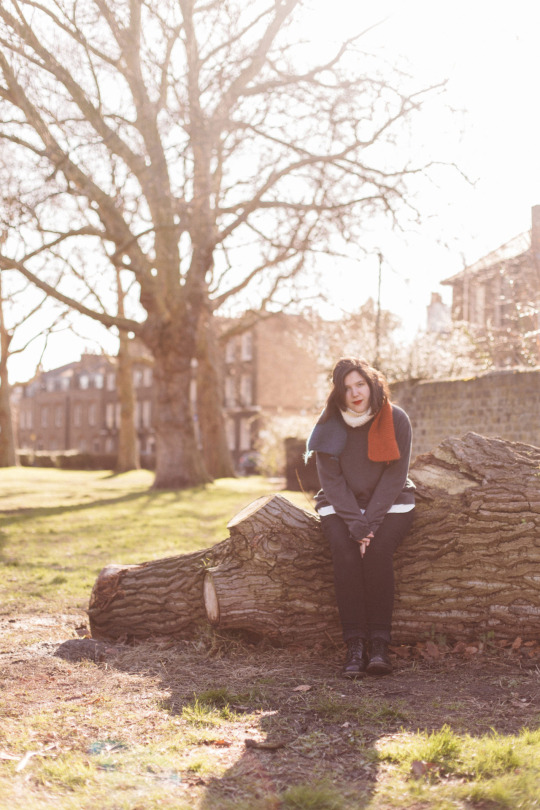

Lucy Dacus was raised in Richmond, Virginia, about two hours south of Washington D.C. on the east coast. It’s a place sometimes described as “the biggest small town left in America.” The family home was in the rural suburbs and she travelled into the city to go to high school. “It’s hard to tell you in one answer how my whole childhood was,” she says. “It’s a large variety of things. Overall, I’m coming out with my thumbs up.”
In her household music was always there. Her mother is a piano teacher, as was her grandmother. Picking up songwriting was never a big deal, like a second language that was spoken around the house. “That’s how music is – like, it’s just part of my life,” she recalls.
Yet the dream of being a professional artist seemed almost so unattainable that it was invisible. In her late teens, Dacus went to college to study film but dropped out, primarily because she’d end up saddled with huge debt. “That, paired with the feeling of being misunderstood in my programme,” she confirms. “I just didn’t have a lot of like minds in my classes.”
That prompted a move back to Virginia where she took a job in a photography lab developing kids’ cheesy school photos. She’d been writing songs in her spare time and gathered nine of the 30-or-so she had together when her friend Jacob Blizard (now her touring guitarist) asked her to record them for his school project. Her 2016 debut album, ‘No Burden’, was made in one day in Nashville. Blizard passed school, and that album received rave reviews. NPR called it “vulnerable”, while Pitchfork said it was an “uncommonly warm indie rock record”. As a result, 20 different record labels reportedly scrabbled to sign Dacus. She settled on Matador, and began to prepare for what should have been a joyful 2017.
The first time Dacus remembers assuming the role of historian she was seven or eight-years-old. She was writing in her journal – and she smiles now recalling her first entry. It complained about how the babysitter spent the whole evening on the phone to her boyfriend. “There’s a point where I realise I’m journaling and so I stop and go, ‘I should probably introduce myself… I’m Lucy’” she laughs, remembering it clearly. “It’s really cute.”
More than a dozen notebooks, and many years later, she still keeps a diary now. Sometimes she writes every day, other times, weeks go by and then she fills 20 pages. Occasionally she flicks open an old one to either “laugh or cringe” at her younger self.
‘Historian’, then, isn’t just the title of her latest album, but also the way she thinks of herself. A chronicler, of her own experiences, but also those around her. Those pages aren’t just a document of a growing maturity, but also a therapeutic habit that helps make sense of many life events, including that recent damaging relationship. “Seeing that it had been broken for the whole time but that I was just oblivious to it, [reading about] it helps to accept that things didn’t change,” she says. “I just saw it for what it was finally, and so perspective is good.”
Those handwritten journals are sacred, which is why, when her tenth one was stolen on tour a few years ago along with a bag of possessions, it was the notebook she replaced first.
The album itself is a recent history – a narrative burrowing through those myriad dark times. Dacus knew that she wanted it to form a complete story, and wrote the track list before some of the songs. “It’s an arc” she says, that begins in a “relatable place” with the only break-up song she’s ever written (‘Night Shift’) that subsequently delves “deeper into darkness.”
“Then the subject matter gets a little more intense,” she tells me, “– going through identity crises, or loss of home, or loss of faith, loss of a loved one, loss of your life. I feel like I’m pulling people into an uncomfortable space.” She pauses. “There’s then a change where hopefully I’m turning on a light and saying, ‘Yes, all of that exists, but it’s a foil to joy.’”

It is an extraordinary piece of work. Musically it’s a colossal step up, reminiscent of recent albums by Mitski (‘Puberty 2’), Angel Olsen (‘My Woman’) and labelmate Julien Baker (‘Turn out the Lights’). The subject matter is heavy, but it’s never a dreary listen. In fact, it’s charming, funny even – like a brave smile emerging through a curtain of tears. And Dacus has a gift for lyric writing; like the eloquent way she pays tribute to the humility shown by her dying grandmother on ‘Pillar of Truth’. From first to final note it’s evocative and powerful. “The first time I tasted somebody else’s spit I had a coughing fit,” goes the LP’s opening line in ‘Night Shift’. “If past you were to meet future me,” she sings on the final line of the closing title track, “would you be holding me now?”
It’s heartening to hear that the contents of Dacus’ NYE tarot reading were largely positive. The forecast noted that she should enjoy the proceeds of her hard work, but that “something horrible happens in the summer, then there’s kind of a rebirth, growing back into, like, life in an even more knowledgeable and peace-oriented way.” Dacus is about to leave, and picks up a bag of books she’s been keeping underneath the cafe table.
“It could be wrong,” she says. “I’m not superstitious. I’m taking it in. When that does happen I hope I can take my own advice – let it be what it is, and look past it eventually
(x) 3/14/18
49 notes
·
View notes
Text

Protecting Your Peace, or Being a Pussy?
By Yellen Art by Raneem Iftekhar
Putting male comedians on a pedestal for so many years of my life was horrid for my mental health. I love their Jester’s privilege. Their pursuit of truth. Their ability to point out the negative realities people don't wish to acknowledge. True catalysts for justice.
Comedy insidiously slips in revolutionary critique in an extremely palatable manner, due to the very nature of its entertainment. The jokes, these necessary reality checks, hold immense power in reframing thought, twisting taboo into norm. If it’s funny, it’s funny. Audience laughter is visceral. uncontrollable. reflects an acceptance of the underlying principle of the bit. The beginning of a somewhat unconscious questioning—a shift in ingrained ideology, although potentially initially uncomfortable.
I wanted to be like them, but I just grew into a menace, playing my favorite sadistic game whenever possible. This favorite pastime involved going out of my way to make my moral adversaries as uncomfortable as possible, verbalizing the unappetizing elephant in the room. I know what you did last summer. No care for pleasantries: let’s let the dirt rise to the surface. I won’t let this blow over. Cunt. You aren’t hidden. As long as I’m here. I will corner you. Trap you into confession.
I was always searching for something or someone to trigger me so I can simulate judge and jury, desperately grasping to feel any sort of power or agency in guaranteeing justice. To instigate some revelation about their lacking morality. To catalyze their own self-reflection and potentially inspire real change. You don’t want to let them off hook, allow them to enjoy the party, same as you, living peacefully with what they’ve done. It feels so deeply wrong to settle with your own discomfort as perpetrators go free. Would you let Harvey Weinstein enjoy his meal at the table next to yours?
But it’s a flawed strategy. On par with cancel culture’s delusion that it actually serves justice. The only one being punished is yourself as you deep dive into a black tar pit. Stuck. bogged down by their darkness. All you are doing is fucking up your nervous system, extending the timeline of your own anger, letting it cramp in your gut. P.S. Comedians are infamously known to be such happy people! Maybe comedy has always been a medium to complain about the things outside our control…to poke fun at our powerlessness. Maybe it’s not this revolutionary instrument of social change you think it is, but merely reaffirms people’s values. You just romanticize being a dick because that’s all you know.
Protecting your peace isn’t overrated. Karma will get them. Remind yourself that real change comes from a place of love. You didn’t even make it funny. You just put them in defense mode, clutching their comfort zone and validating their own worth as their humanity is attacked. The opposite of your “intentions.” Self-disillusionment, the process of confronting the violence of your own automatic assumptions and reframing them comes from within…But your anger is righteous and what’s the alternative? Ambivalence? Complacency? It’s a difficult balance.
I’m on a painstaking journey to deconstruct my perfectionism and shift my judgmental lens in the name of self love. I’m typically the biggest victim and the most common target of my seething hatred. In attempting to free my soul from this negativity, I try to remind myself that firstly, it’s ok to fuck up. And secondly, not every moment is a defining moment…But is it, though? Life has this magic essence to it, this circular mirroring of sorts, in which specific microcosms reflect greater patterns. Life is full of fractal reflections between small and large instances: no matter how deep you dig, you arrive on a fraction of the same thing. I usually collect people’s words like trinkets to add to a comprehensive psychological file I reserve in my brain. I’m addicted to retrieving more data to fill in my mental picture. Yes, that data says something. But not everything is a part of a greater pattern. Remember that they are so much more than what you see or hear. You aren’t engaging in critical thought, you are just critical. Keep telling yourself it was always about them and not some grand overcompensation for your own self-hatred. Everything is a mirror, after all. Stop projecting.
Today it dawned on me how much I’ve really changed. I’ve been making an excruciating effort to be kinder to myself. But in turn, I’ve become a straight up pussy. Now we have arrived at the extremely stupid reason I wrote this piece: because of two petty instances of girls disrespecting me last week. One of them involved some frigid bitch rolling her eyes at me and then ignoring me when I introduced myself. I humbly asked for her name and ignored her cuntiness. The other involved some alt chick cutting me in line. I said under my breath with my head down, “Don’t you hate when people cut?” and the bitch really hit me back with a loud “Ya I fucking hate when people cut” as she cuts. Now, I just said nothing. I’ve never felt like such a narc loser in my entire adult life, even though the concept of a fucking line has to be one of the most basic forms of common curtosy to ever exist. But She won. Hands down. Honestly I can’t even blame her. I have to respect her and I kind of want an enemies to lovers arch for us.
But anywho, my past self would have paid big money to be awarded any opportunity to deliver some seething comeback her way. But I stood in silence and it’s been haunting me. I can’t believe I’m…chill..now. I stopped subtweeting for the most part on my instagram story because my compulsive desire to put people on blast has gotten me in trouble many a time. I’m growing up, choosing my battles, developing my prefrontal cortex. But I am still riddled with a deep sense of regret over my silence in both these dumb situations. Maybe I should have made a scene. Bowed down to her excellency and profusely apologized for entering her space in medieval english prose.
God, no one tells you that protecting your peace feels absurdly fucking lame. [redacted]
_________
The original ending to this piece involved me personally naming the bitches that briefly hurt my ego and telling them to go fuck themselves, ironically undermining the healing narrative I championed in this entire article thus far over such petty, insignificant situations cuz its semi-funnyish (at best) commentary on my tendency to revert back to my nasty id instincts no matter how much I try to self-help out of being a chronic hater. But ultimately, the clickbait title of this piece presents a false binary: silence or explicit aggression. But I’ve come to learn that protecting your peace doesn’t make you a pussy; it’s just the opposite.
Let’s take a look at your doomed track record thus far. You allow disrespect to tally up until you reach a breaking point that has almost nothing to do with the straw that breaks the camel's back. Then you continue to publicly pop off on an anonymous adversary on social media, with a shield of comedy and just enough vagueness to avoid communicating directly, promptly and vulnerably. Fighting behind a black screen without even really admitting you’re fighting. Championing plausible deniability to slither out of actually confronting the problem with the person head-on. Calling someone out for some dumb bullshit they probably don’t even remember in a published article where they cannot defend themselves…That’s what being a pussy looks like. Yes, I know: there are people in this world that deserve to be bullied, and yes, it’s a real shame they don’t experience debilitating shame on a daily basis like you do. But ever heard of the saying, “Misery loves company?” You are ohhh, sooo predictable—following the classic “bullied becomes the bully” character arc. So quick to condemn but someone calls you weird once and you crumble. Do you feel less weak now or more than ever? No, no, I’ve got it all wrong? You’re powerful? Extremely secure? Such conviction. Praise be.
14 notes
·
View notes
Text
Thursday 9th February 2023
The big event today was the impromptu appointment at the Sydney Opera House (SOH) for the performance of Mozart's Don Giovanni. All in all things didn't go too smoothly on the run up to the concert. We went into the City early to get a prepaid SIM card in the knowledge that we needed our passport to do this. The Vodafone girl therefore was not impressed when it was clear we had forgotten it. So having to make a special journey tomorrow to get one. Then having arrived at the SOH in our finery, we ordered the interval Sauv. and a couple of flat whites to go and sat down on one of the leather cushioned benches in the bar area. I momentarily put the coffee cup down next to me when an American lady with a huge bum heavily placed it 2 feet away, sending my cup into orbit, seesaw fashion. It was perfectly fine on the way up, but on its descent became more fluid especially on the seat and subsequently my trouser department. There's a certain irritation and embarrassment involved regarding wet trousers in a public place such as the SOH just prior to what was to be a pleasant evening. The other theatre guests were gathering; ladies in evening attire, men with big floppy artistic hats, luvvies, actor types, cream jackets that might have been considered trendy 20 years ago but now looking a bit worn, good accents, bad accents and right in the middle was me with a big damp patch doing my best to make a fashion statement. We stood in the weak evening sunshine on the terrace hoping the suns rays might help.
All that is an extended overture to the main business of the evening. Giovanni is a brutal opera about a very topical and modern subject, Don Giovanni who is a misogynistic, sexist, serial rapist murderer who should not be allowed out. It really is somewhat shocking especially after revelations about Harvey Weinstein. In the first act, DG is trying it on with Donna Anna and when her father, the Commodore intervenes, DG kills him. DG is wearing a tiny little mask at the time which apparently rendered him completely unrecognisable! After much argy bargy it becomes known that it is indeed DG that killed the Commodore and the community seeks to hunt him down to kill him. The other shocking aspect to the story is the way the women are portrayed. Donna Elvira despite knowing DG killed the Commodore, is still saying she loves him! So is Zerlina. It all ends well in the end. The Commodore comes in for dinner as a stone statue and has DG dragged off to hell and we see no more of him till the encore.
Shocking plot, great singing, great production, great theatre, great location great big damp patch. What an occasion! The SOH is the place to go!
We then marched across empty streets to Wynyard to catch the 173x home. The bus drops us within half a mile of home, but this seems a long way at 11.30pm and so reminded me of when as a child, dad had taken us all out for a long day, and to save a couple of bob we alighted at the fare stage before our stop and walked the rest, dark, normally bright red London buses turned grey in the light of the yellow sodium street lighting. It seemed so far to go. Cup of tea and a white Tim Tam soon bucked the spirits.
Last day here before collecting a car from the airport and traveling north towards Brisbane.
ps This opera was first performed in Prague in 1787 which was pretty much when the first fleet was mooring up in Sydney Harbour. Incredible to think of the differing circumstances.


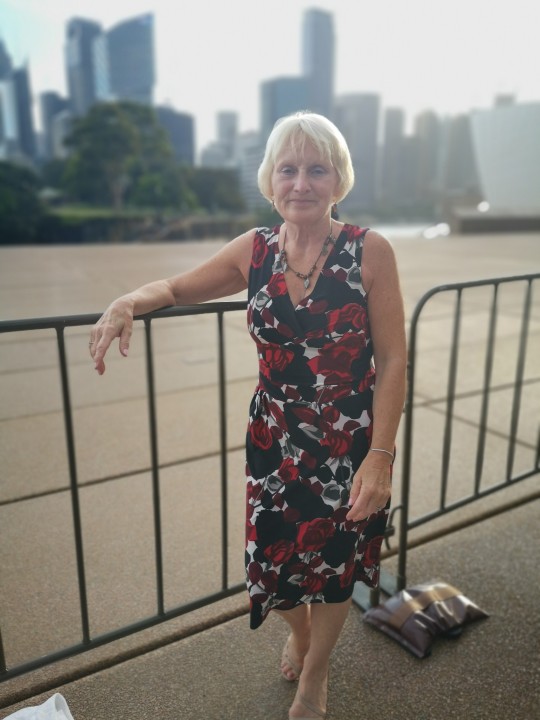



3 notes
·
View notes
Link
🌟💍👸🕺💃🎥 New on Netflix: 129 minutes to understand one of Hollywood's biggest scandals - Cinema News Passing under the radar when it was released in the cinema, “She Said” returns to the Weinstein affair. It's now available on Netflix if you want to catch up. This is the biggest scandal ...... 🎶🏆💔📸🎉
0 notes
Text
5 Things You Need to Know about the Impact of New Media on Journalism
Journalism is a profession that is now more available than ever, but also more in danger than it has ever been. Here are 5 elements of journalism that contribute to its strange evolution.

1. What Does it take to be a traditional Journalist.
A journalist is someone who provides a critical account of daily events gathered, selected, edited and disseminated by a professional organization. Journalism is an essential part of democracy, informing people and influencing their civic decisions. They keep those who are in power accountable for their actions and, though it is not a government branch Journalism is known as the fourth branch of government. The dissemination of information is very important for socirty.
2. Muckraking Journalism
Muckraking Journalism was very popular in the 1900-1920s. This form of journalism was a way of cleaning out corrupt society. Ushers of this age of journalism are people such as, Upton Sinclair, Samuel Hopkins and Ida Tarbell who each contributed to the upheaval of corrupt people and organizations through their writings. Modern day examples of this would be, Glenn Greenwald who wrote for The Guardian and published Edward Snowden’s revelations about domestic spying, Julia Wong’s expose about the labour abuses at Tesla’s Fremont, California car factory in 2017 and Jodi Kanto and Megan Twohey’s expose on Harvey Weinstein’s predation.
Related Source: https://www.vice.com/en/article/8xbwvx/journalists-social-media-platforms-unpaid-content-moderators-twitter-facebook-instagram
3. Digital Media’s Influence
Digital media is a great avenue to be able to facilitate the dissemination of important information regarding marginalized groups, But it is also a way to spread bias and misinformation. Journalistic practices are based on elements such as objectivity and balance as they rely on official sources to give them important information. These some official sources are police, government leaders and academics. But what if these people are not honest? That is why it is important to have well rounded information, interviewing both sides of an issue. Not considering all sides of a story can lead to biased accounts that spread misinformation. Though to be unbiased is the goal it is important to know that to be completely unbiased is impossible. Everyone has their own agenda whether it is harmless or not, but it will always be important to be as unbiased as one can be.
4. Backpack Journalism
These days journalism is mostly consisting of backpack journalists. These are journalists who must do almost all the production process themselves as opposed to writing and being published through the institution. They must write their stories, be the photographer, provide their own embedded audio and submit the story themselves. Digital media effects this process negatively by making the positions of journalists precarious. The oversaturation of news media hinders the performance and the earnings of the publications and prevents them from properly compensating their workers. These workers will then create unions to obtain fair treatment only to have the publication die.
5. Twitter’s Impact on Journalism: What does it take to be a modern Journalist?
Twitter has become a platform that is very useful for Journalism. Journalists use Twitter for collecting information about different accounts as well as asking people for interviews. 80% of their news gathering is from the app. Today Journalists even need a large online following in order to promote their content and garner further support. It is also a tool to be able to disseminate information in more casual way. No longer does news have to be limited to a time and place, now it can be an online discussion occurring 24/7.
Related Source: The impact of Twitter on journalism: https://www.youtube.com/watch?v=Nl9xI-kAE8A
Related Sources:
Cohen, N. S., & de Peuter, G. (2020). New Media Unions. https://doi.org/10.4324/9780429449451
Trusolino , M. (2023). Disrupting Traditional Journalism: The Impact of New Media [Power Point Slides].
0 notes
Photo

Paris Hilton's Surrogacy Decision Stemmed From Past Trauma Paris Hilton never had a simple life.In an extremely raw and vulnerable interview with Glamour UK, the 42-year-old heiress details how her past trauma led her to use a surrogate for the birth of her son, Phoenix Barron Hilton Reum, with husband Carter Reum.Hilton revealed how her fear of giving birth stretches back to Provo, the Utah boarding school she attended, and being in a doctor’s office where “they used to regularly take samples of her blood” as well as a traumatic moment on The Simple Life where she had to bear witness to a woman giving birth.Hilton, whose talents span from reality starlet to pop star to a chef, first opened up about her dark past in her 2020 YouTube documentary This is Paris, where she described the physical and mental abuse she suffered in the 11 months she spent at Provo Canyon School, a boarding school for troubled teens in Utah.This revelation came as a surprise to many viewers who primarily viewed the socialite as a “dumb blonde,” a persona that Hilton adopted as a coping mechanism due to past traumatic events. The character, she explains to Glamour UK, was inspired by iconic blondes Marilyn Monroe, Barbie and Dolly Parton — the last of whom she shared a stage with this past new year.Hilton went on to share how she was taken advantage of by her teacher when she was just 15 and then drugged and raped by an older man that same year. She was also the victim of an encounter with Harvey Weinstein and a leaked sex tape with then-boyfriend Rick Salomon when she was 19.The persona that fans of The Simple Life saw was “more comforting” to adopt than “deal[ing] with everything [she]’d been through in life.”“I’m not a dumb blonde, I’m just very good at pretending to be one,” Hilton makes clear. “I think I’ve just been through so many things that I’m a warrior, I’m a fighter, I’m brave. And I’m a badass.”“I just want to enjoy my life with my family and be normal,” she admits.Photo via Getty/ Neilson Barnard https://www.papermag.com/paris-hiltons-surrogacy-2659466375.html
0 notes
Text
::sigh::
So it took all of 96 hours for people to decide to feel outrage about Dave Chappelle’s second comedy special on Netflix, The Bird Revelation. Honestly, I thought people would’ve gone for the jugular on that one first. Especially since he’s a black man addressing his perspective on the Weinstein-era sexual harassment and sexual assault charges. (I believe at the time of the taping he said Charlie Rose was just fired or the accusations about him were just announced.)
I knew in the course of watching it, he was going to piss people off. Just like I knew he was going to piss people off with his last Netflix specials from early 2016. So it was indeed expected. What I find interesting is that people waited 3 full days after the specials went live before they decided how they should feel about his statements in the special. Or shall I say, they waited to be told how they should feel about his statements in the special.
::sips drink::
It’s OK to not find everything a comedian says funny. It’s always been OK. And no comedian is funny all the time. Literally no one. But if you have to wait on how you’re going to respond to a comedy performance because you’re afraid that your response won’t be the “correct” response, then there is something extremely wrong with our concept of stand-up comedy.
I don’t agree with everything Dave said, but I’ve never agreed with everything he’s said. Not in the 1990s. The 2000s. Or today. And that goes for every comedian I’ve ever liked. Bill Burr. Anjelah Johnson. Adele Givens. George Carlin. Richard Pryor. Jerry Seinfeld. Eddie Murphy. Ellen Degeneres. Chris Rock. Gabriel Iglesias. Katt Williams. Jim Gaffigan. And so on. You name it. Here’s the reality: For something to be funny doesn’t mean it has to be right. It doesn’t have to be morally correct. And you don’t have to agree with them to recognize where the humor lies in their perspective.
I think Dave Chappelle was right in his first special of the new set, Equanimity. He needs to go away for a while. We are living in a brittle state of insecurity. We are insecure about how we feel or how we should feel because we are finally answering questions and facing truths we’ve long ignored. And as long as we’re insecure, we’ll never be able to deconstruct why and where humor and absurdity can exist in the heart of tragedy.
73 notes
·
View notes
Text
I read the book DisneyWar a few weeks ago, and I was going through my highlights and found this gem from Ted Turner:
On January 10, Eisner was startled by news that AOL and Time Warner were merging in a stock swap valued at $165 billion, the biggest merger in history. AOL’s Steve Case would be chairman of the combined companies, and Gerald Levin chief executive. Ted Turner, CNN’s founder, Time Warner’s largest shareholder and a board member, told The New York Times that he had voted to approve the deal “with as much excitement as the first time I made love 42 years ago.”
#It took me a while to read the book because some parts were kind of... uncomfortable after recent revelations#The Weinsteins pop up quite a bit#(though it did make me laugh when Harvey was introduced in a really unflattering way)
1 note
·
View note
Text
Disgraced Hollywood producer Harvey Weinstein was secured a partial victory in court Monday.
A judge said she would allow Weinstein's defense the opportunity to question the wife of California Gov. Gavin Newsom, Jennifer Siebel Newsom, about an email she sent to Weinstein two years after she was allegedly raped by the now 70-year-old.
Los Angeles Judge Lisa Lench ruled that the defense could ask about an email Siebel Newsom sent seeking media advice from Weinstein, but could not say it was about revelations of an affair that Gavin Newsom had with an aide when he was mayor of San Francisco.
Weinstein's attorney, Mark Werksman, argued it was imperative to include the details, stating, "Of all things you’d think a woman that is raped by Harvey Weinstein wouldn’t do, it’s ask him how to deal with a sex scandal."
The judge disagreed with Werksman, suggesting he was overstating the case by saying Weinstein’s due process was at stake.
MEL GIBSON CAN TESTIFY AT HARVEY WEINSTEIN TRIAL: JUDGE
Siebel Newsom is one of five women Weinstein has been charged with raping and sexually assaulting.
This particular assault allegedly happened between 2004 and 2005 in a Beverly Hills hotel.
It was reported that Weinstein's team will argue the relationship was consensual.
HARVEY WEINSTEIN PLEADS NOT GUILTY TO 11 SEXUAL ASSAULT CHARGES IN CALIFORNIA
Siebel Newsom is an actress and filmmaker who had been dating California's Gov. since 2006. They were married in 2008.
Throughout the course of their marriage, Siebel Newsom has been outspoken on sexual assault and gender equality.
The prosecution also secured a win on Monday, with the judge permitting the prosecution to play jurors a secret recording that another witness, Ambra Battilana Gutierrez, made of Weinstein in conjunction with New York police in 2015. In that recording, Weinstein apologizes for his behavior after she said he had grabbed her breasts and touched her thigh.
9 notes
·
View notes
Text
Just before the curtain came up on Vardy v Rooney: The Wagatha Christie Trial, producer Eleanor Lloyd spoke to the audience about its breakneck transposition from real-life courtroom drama to stage show and the “high-wire act” that such theatre becomes. The part-verbatim show dramatises the case that was detonated soon after Coleen Rooney dropped her Instagram grenade and Rebekah Vardy filed for libel.
Having run in the high court and been reported in the media only a few months earlier, here it was again, reprising the best lines, from chipolata-gate to Davy Jones’s Locker. Laying its public interest debate aside, it was indisputably the watercooler story of the spring and summer, its incredible WhatsApp turns holding us rapt.
That, in some ways, guarantees a degree of commercial appeal, although there are drawbacks too: a drama replicating reality so soon after the event runs the risk of setting up a competition with the real story’s own high drama. Lloyd wasn’t wrong to call it a “high-wire act” in the sense that the best might already have come in the news stories. How could this show replicate the sugar-rush of those revelations? It is not surprising that the tension was missing in the theatre’s courtroom: the case’s most car-crash lines were too familiar to us to really shock. We’d laughed or gasped at them only a few months earlier. Now we tittered with recognition but they sounded ersatz.
There are some instances when reality is simply a more powerful medium and fictional drama can’t raise the stakes, or value – at least not when we are still pressed up so close to the drama of the new story. At least the Wagatha play was based in verbatim form (there is a TV drama launching, groan). Real life gives us more drama than fiction ever could in this case, I think, because its central players are real and the form therefore carries the added sense of “truth”.
Mike Bartlett’s play about Donald Trump, The 47th, was anti-climactic for just this reason. Real life simply couldn’t be trumped, even with the imaginative re-framing of the story in a near-future with baroque plot-turns and a very amusing impersonation of the former president by an orange-skinned Bertie Carvel. The jokes, speeches and storming of the Capitol were too reminiscent of recent real events, and not half as shocking. Imagination clung too closely to fact in the end and was smothered by it.
A musical about Silvio Berlusconi is under way which I hope is not straitjacketed in the same way. It is billed as an “almost true story” – presumably weaving fiction into the facts we know of Berlusconi’s life and leadership. Produced by Francesca Moody, who was behind Phoebe Waller-Bridge’s Fleabag, the story will be told through a “fierce feminist lens” according to Moody, and perhaps this will liberate its imagination.
Often real-life-based dramas fail because they can’t illuminate anything new. But at their worst they appear to be riding on the back of a sensational news story. This was the case with David Mamet’s Bitter Wheat, and Steven Berkoff’s Harvey, both dramatising the Harvey Weinstein sex scandal. What exactly was the point, beyond salaciousness? Alongside this, the unsavoury decision to dramatise the scandal from Weinstein’s point of view, with the added discomfort of two male writers ventriloquising for him at a time when women might better have been given a voice.
There is an argument, more generally, to say that the creative process needs time to turn real life into something more than testimony or imitation alone – to gain insights, find new perspectives, plumb depths. That said, many of the quick-response dramas on screen made during the pandemic about frontline workers and the Black Lives Matter protests of 2020 reflected our world back at us with immense and immediate power. These were produced in real time, as events were occurring, rather like Ali Smith’s seasonal quartet series. They were mirrors of events churning in the world, which held value in that charged moment.
But after that moment is gone, we do need drama to bring something more, I think. One such show that recently ran at the Chisenhale Gallery, in London, featured excerpts of a film made inside a closed mental health hospital ward in 2021 to reflect the pandemic’s effects on young inpatients. This film was set against live performances by some of the same young people, since discharged (and included their responses to the film). Seth Pimlott, who curated the show, said it demonstrated how drama could help us better understand difficult real-world experience.
Maybe creative licence is key: to make a news story into something different. The 9/11 musical Come from Away, based on the true story of over 6,000 travellers grounded in the tiny town of Gander on the island of Newfoundland for five days after the Twin Towers attacks, sounds like the unlikeliest of hit shows. What is remarkable about the real-life aspect is that it is so marginal to the main event of the terrorist attacks, and the far bigger, more catastrophic drama happening in New York. It is clear in the musical that something else is being done with the use of the documentary material. The plot, as it stands, is slight. Nothing happens outwardly beyond the grounding of these planes and passengers, and yet so much happens in terms of relationships and emotional connections. By coming at the news story sideways, it becomes fresher. The imagination, in the end, needs to upstage the facts and so achieve the high-wire act of the real-life drama.
2 notes
·
View notes
Photo
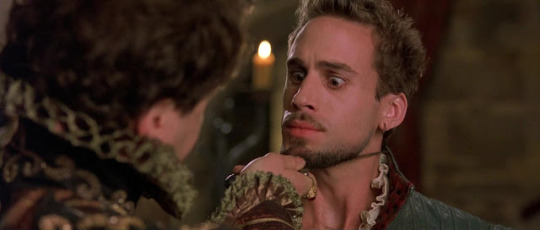
Colin Firth and Joseph Fiennes in Shakespeare in Love (John Madden, 1998) Cast: Joseph Fiennes, Gwyneth Paltrow, Geoffrey Rush, Tom Wilkinson. Colin Firth, Simon Callow, Judi Dench, Imelda Staunton, Ben Affleck, Martin Clunes, Rupert Everett, Jim Carter, Joe Roberts. Screenplay: Marc Norman, Tom Stoppard. Cinematography: Richard Greatrex. Production design: Martin Childs. Film editing: David Gamble. Costume design: Sandy Powell. Music: Stephen Warbeck. Posterity is a bitch. Winning a best picture Oscar doesn't necessarily fix a film permanently in the hearts and minds of moviegoers or film historians. Almost overnight, the tide began to turn against John Madden's Shakespeare in Love, in large part because it was a surprise winner over the presumed front-runner, Steven Spielberg's Saving Private Ryan. As time has passed, Gwyneth Paltrow's best actress win for Shakespeare in Love has been questioned, too, partly because Paltrow's subsequent acting career has done nothing to maintain her reputation, and her dabbling in fields such as country music, fashion, and off-beat New Age medicine and diet has made her look like a giddy dilettante. Even the fall of Harvey Weinstein cast a dark shadow over Shakespeare in Love, which he helped produce for his company, Miramax, and for which he managed an extensive Oscar campaign. But when I watch the film again, I find myself caught up in its witty imagining of Shakespeare's life and milieu, the sexiness of its romantic intrigue, and yes, Paltrow's skillful performance of what is essentially four roles: Viola De Lesseps, Thomas Kent, and both Romeo and Juliet. It's a charming tour de force that makes me wonder what brought it out of her and what subsequently made her crash and burn. Much of the success of the film, however, lies not in its uniformly good performances or in John Madden's direction, but in the Oscar-winning screenplay by Marc Norman and Tom Stoppard. I suspect the latter, who had already demonstrated his intimate knowledge of Shakespeare in the play Rosencrantz and Guildenstern Are Dead, is most responsible for a screenplay that can attract the casual moviegoer and entertain English majors at the same time. Some of its jokes go over a lot of the audience's heads, such as the revelation that the bloodthirsty, sadistic street urchin (Joe Roberts) who hangs around the playhouse is named John Webster. The character is just the right age to grow up to write those hair-raising Jacobean plays The Duchess of Malfi (1612) and The White Devil (1614), but not knowing that doesn't matter much to the success of the film. Shakespeare in Love is never, as its central character would put it, "caviar to the general." Is it a better film than Saving Private Ryan? Or is it just the temporary beneficiary of aggressive promotion? That bitch posterity will be the final judge.
4 notes
·
View notes
Text
Model Cara Delevingne Revels Secret About Producer Harvey Weinstein
मशहूर फिल्ममेकर हार्वे वीनस्टीन को लेकर कारा डेलेविन ने खोले कई राज

मॉडल और एक्ट्रेस कारा डेलेविन इन दिनों काफी चर्चा में हैं, क्योंकि उन्होंने हाल ही खुलासा किया कि वे समलैंगिक हैं। कारा ने बताया कि उन्हें प्रोड्यूसर हार्वे वीनस्टीन ने कहा था कि वह एक समलैंगिक महिला के तौर पर कभी इंडस्ट्री में अपना मुकाम नहीं बना पाएंगी। बता दें हार्वे पर कई महिलाओं द्वारा यौन उत्पीड़न का आरोप लगाया जा चुका है।
#model cara delevingne#Cara Delevingne Revels Secret About Producer Harvey#Filmmaker harvey weinstein#hollywood news#entertainment news#bhaskarhindinews#bhaskarhindi#bhaskarhindi news
0 notes
Photo

New book uncovers fresh Harvey Weinstein revelations NEW YORK: A new book about allegations of sexual violence against Harvey Weinstein, written by journalists who broke the story in 2017, describes how his brother begged him to get help for his & # 39; misconduct & # 39 ;.
0 notes
Photo

A bit of October 14th history...
1066 - Battle of Hastings: William the Conqueror and his Norman army defeat the English forces of Harold II who is killed in battle
1322 - Robert the Bruce of Scotland defeats King Edward II of England, forcing Edward to accept Scotland’s independence
1774 - 1st Continental Congress makes Declaration of Colonial Rights
1960 - Peace Corps 1st suggested by JF Kennedy (pictured)
1964 - Martin Luther King, Jr. announced as winner of Nobel Peace Prize
2014 - WHO announce Ebola virus death toll at 4,447 and the fatality rate has reached 70%
2017 - Producer Harvey Weinstein is expelled by the Academy of Motion Picture Arts and Sciences after historical revelations of sexual harassment and rape
#history#anthropology#william the conqueror#robert the bruce#colonial rights#peace corps#mlk jr#ebola#harvey weinstein
10 notes
·
View notes
Note
What are your opinons on marchesa? People were a bit iffy about it after the whole scandal with the now ex husband. And i don't think a woman must be punished for her husband's wrongdoings. She's an amazing designer. I personally love her designs and think they are very creative and beautiful, with a little whimsical femininity.
I won’t lie, when the Harvey Weinstein scandal hit the headlines I became very dubious of Marchesa because of Georgina Chapman being married to him. However after her interview with Vogue in which she talked about the scandals, my opinion of her shifted completely. She eloquently said that she certainly wasn’t a victim but someone who had just been caught up in it all. I don’t believe for a second she knew what her husband was up to and was just as shocked by the appalling revelations as the rest of the world. We are now living in a “cancel culture” where any wrong doings by anyone (famous or not) will be called out when there’s plenty of evidence stacked against them. Look at what’s going on with Ellen Degenere’s right now. I strongly believe that Georgina’s interview with Vogue saved her and Marchesa from being a victim of cancel culture and rightly so. Just because Georgina’s husband (now ex) was outed as a vile monster, didn't automatically mean that she was a part of his vile behaviour. Feel free to read the interview here. It’s a real eye opener and puts to bed the rumours of Georgina Chapman or Marchesa’s “supposed” involvement in the Harvey Weinstein scandal.
115 notes
·
View notes
Link
I emerged from an early screening of The Assistant a few weeks ago to the news that a jury had been selected in Harvey Weinstein's sexual assault and rape trial. Coming more than two years after The New York Times and The New Yorker first published their reports of sexual harassment and assault against the famed film producer, the headlines were a stark reminder of how long it can take for a wealthy and well-connected man to face the accusations against him in court — even after a stunning public downfall that helped give rise to the #MeToo movement.
Although it's not clear exactly when it's taking place, Kitty Green's quietly devastating movie returns us to a time before #MeToo and its explosive revelations of sexual abuse rattled the world and the entertainment industry in particular.
604 notes
·
View notes